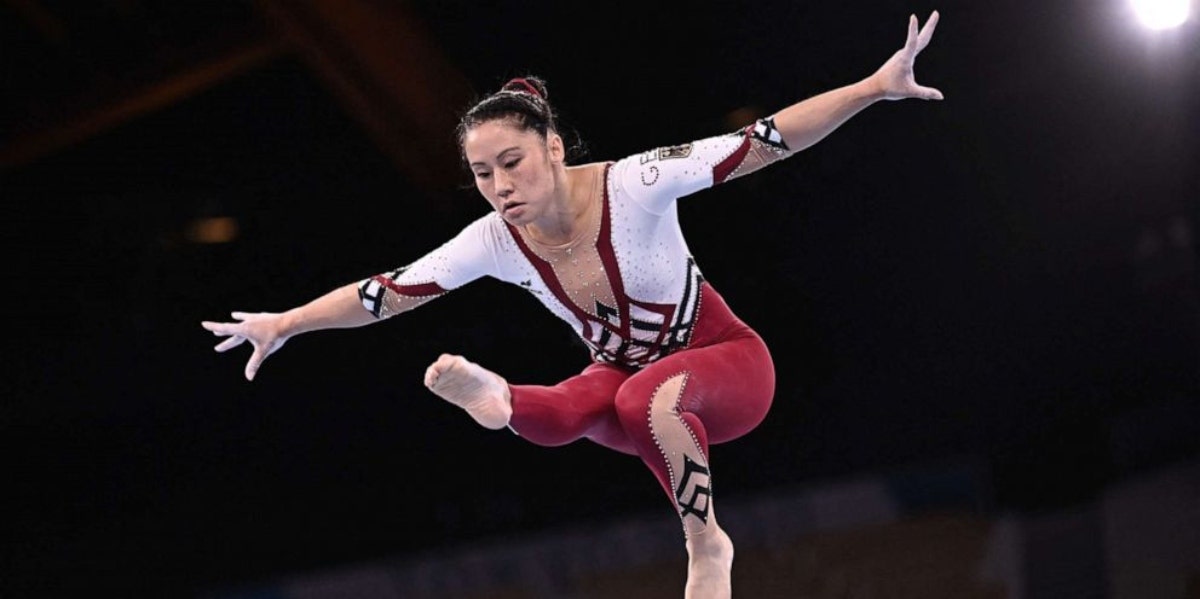German Gymnastics Team Takes Stand Against 'Sexualization' Of Female Athletes With Full-Length Uniforms
Stop telling women what to wear.
 Getty Images
Getty Images The German gymnastics team is using their Olympic uniforms to push back against sexism in the sport as the double standards between male and female athletes rage on.
Across many sporting competitions, women’s uniforms and the rules surrounding them are blatantly sexist, but more and more female teams are standing up to deep-rooted misogyny layered under these outfits.
German gymnasts are taking a stand against sexualization.
While most gymnastics teams took to the floor in Tokyo wearing traditional leotards, the German squad stood out in their full-length unitards.
The team has been opting for the non-traditional uniform since European championships in April when the German Gymnastics Federation said the choice of apparel was meant to resist “sexualization” in the sport.
The uniforms are not dissimilar to what male gymnasts have been wearing for decades: loose-fitting shorts or full-length pants.
“We wanted to show that every woman, everybody, should decide what to wear,” Germany’s Elisabeth Seitz said of the new look.
The Tokyo Games are the first Olympics since Larry Nassar’s sexual abuse scandal rocked Team USA and the gymnastics world, in general. Since then there has been international pushback against the norms in the sport that enable a culture of abuse and sexism.
However, it’s not just gymnasts that are challenging the oppression of women within sports.
A British Paralympian was told her shorts were ‘too short.’
Olivia Breen, a British Paralympic sprinter and long jumper, spoke out against the double standards in sporting uniforms after an official criticized her and said her running shorts were too short at the English Championships ahead of the Paralympics.
“I have been wearing the same style spring briefs for many years and they are specifically designed for competing in. I will hopefully be wearing them in Tokyo. It made me question whether a male competitor would be similarly criticized,” Breen, who has cerebral palsy, wrote on Twitter.
Deeming the items “too short” betrays the sexualization female atheletes are subjected to when their choice of clothing becomes a vehicle for outdated notions about how women dress.
If the German gymnastics team is trying to demonstrate that women should be in control of their own clothing regardless of the social implications of that clothing, Breen’s experience is proof that their protest is necessary.
A Norwegian handball team was fined for not wearing bikini bottoms.
In handball, meanwhile, the Norwegian women’s beach handball team was fined last week for “improper clothing” at the European Beach Handball Championships after they wore shorts instead of bikini bottoms.
The shorts were similar to those worn by their male counterparts, who can also wear vests. Women in the sport are required to wear sports bras and bikini bottoms.
The rules betray an ironic inconsistency across women’s sports.
Women can be called out for wearing items that are too short and not short enough, and are often left answering to rules that have nothing to do with their sporting ability.
The regulations around these uniforms mean women in sports are required to fulfill two purposes — compete and dress to please the crowd.
At times, the uniforms aren’t even practical. In lacrosse and tennis, skirts are hardly more comfortable for female competitors than shorts.
These uniforms insist upon a level of femininity that perhaps comes from a school of thought that is uncomfortable with women in sports.
But in these high-profile competitions, we have some of the greatest athletes of all time who just so happen to be female. Reducing their ability to compete to the length, shape, or style of their outfit is a logic about as old as the Olympics itself.
Alice Kelly is a writer living in Brooklyn, New York. Catch her covering all things social justice, news, and entertainment. Keep up with her Twitter for more.

